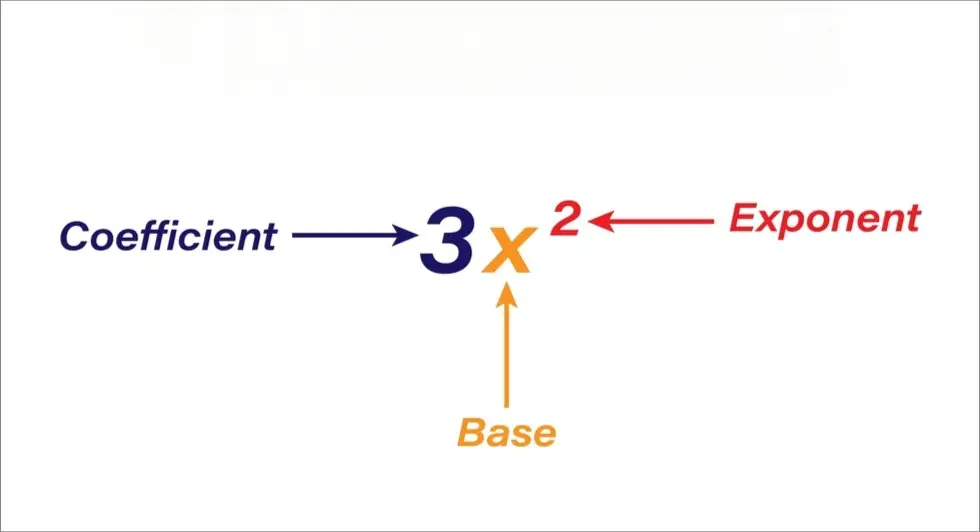Base (Algebra)
What is a Base in Algebra?
A base in algebra is the number or variable that is being raised to a power by an exponent. For instance, in , the number
is the base. Similarly, in
,
is the base.
Exponents and Base
In algebra, the base in an exponential expression is the foundational number or variable that is repeatedly multiplied by itself, as specified by the exponent. The exponent indicates how many times the base is used as a factor.
For example, in the expression , the base is
, and the exponent is
. This means the base
is multiplied by itself
times:
.
Here’s a breakdown:
- Start with the base,
.
- Multiply the base by itself:
.
- Multiply the result by the base again:
.
Key Points About the Base in Exponential Expressions:
- The base can be a number (e.g.,
).
- The base can also be a variable (e.g.,
).
- If the base is negative and raised to an even exponent, the result is positive (e.g.,
).
- If the base is negative and raised to an odd exponent, the result is negative (e.g.,
).
